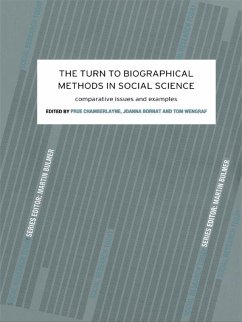
Interpretation and Method (eBook, ePUB)
Empirical Research Methods and the Interpretive Turn
Versandkostenfrei!
Sofort per Download lieferbar
56,95 €
inkl. MwSt.
Weitere Ausgaben:

PAYBACK Punkte
28 °P sammeln!
Exceptionally clear and well-written chapters provide engaging discussions of the methods of accessing, generating, and analyzing social science data, using methods ranging from reflexive historical analysis to critical ethnography. Reflecting on their own research experiences, the contributors offer an inside, applied perspective on how research topics, evidence, and methods intertwine to produce knowledge in the social sciences.
Dieser Download kann aus rechtlichen Gründen nur mit Rechnungsadresse in A, B, BG, CY, CZ, D, DK, EW, E, FIN, F, GR, HR, H, IRL, I, LT, L, LR, M, NL, PL, P, R, S, SLO, SK ausgeliefert werden.













